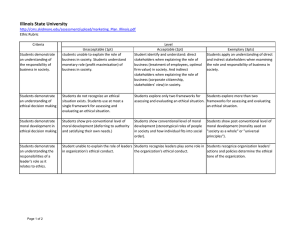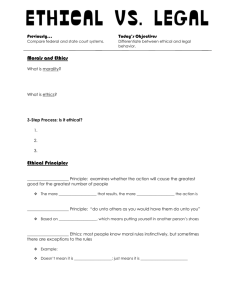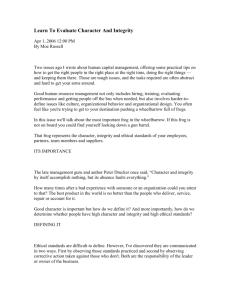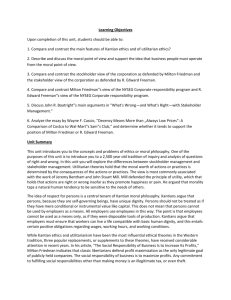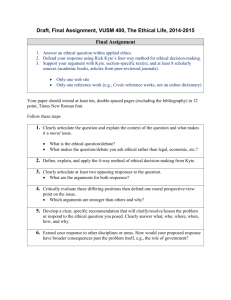Illinois State University http://cms.skidmore.edu/assessment/upload
advertisement
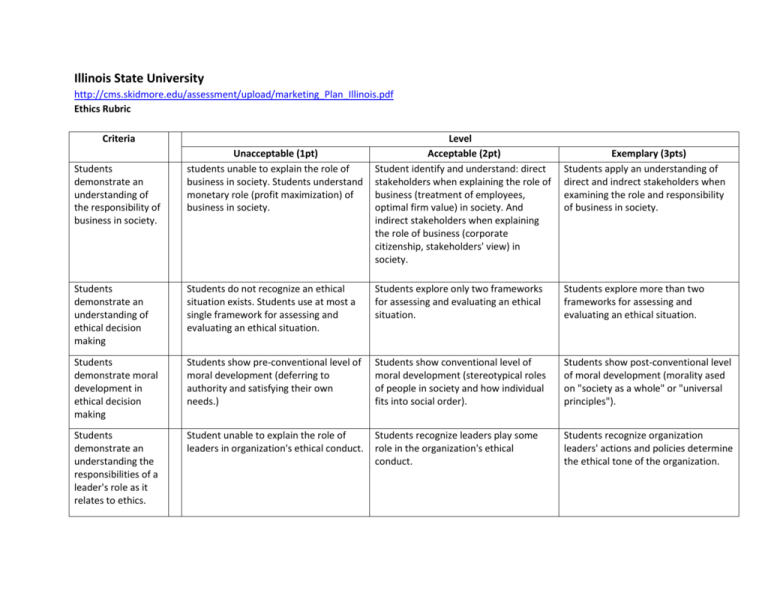
Illinois State University http://cms.skidmore.edu/assessment/upload/marketing_Plan_Illinois.pdf Ethics Rubric Criteria Students demonstrate an understanding of the responsibility of business in society. Unacceptable (1pt) students unable to explain the role of business in society. Students understand monetary role (profit maximization) of business in society. Level Acceptable (2pt) Student identify and understand: direct stakeholders when explaining the role of business (treatment of employees, optimal firm value) in society. And indirect stakeholders when explaining the role of business (corporate citizenship, stakeholders' view) in society. Exemplary (3pts) Students apply an understanding of direct and indrect stakeholders when examining the role and responsibility of business in society. Students demonstrate an understanding of ethical decision making Students do not recognize an ethical situation exists. Students use at most a single framework for assessing and evaluating an ethical situation. Students explore only two frameworks for assessing and evaluating an ethical situation. Students explore more than two frameworks for assessing and evaluating an ethical situation. Students demonstrate moral development in ethical decision making Students show pre-conventional level of moral development (deferring to authority and satisfying their own needs.) Students show conventional level of moral development (stereotypical roles of people in society and how individual fits into social order). Students show post-conventional level of moral development (morality ased on "society as a whole" or "universal principles"). Students demonstrate an understanding the responsibilities of a leader's role as it relates to ethics. Student unable to explain the role of leaders in organization's ethical conduct. Students recognize leaders play some role in the organization's ethical conduct. Students recognize organization leaders' actions and policies determine the ethical tone of the organization. Students demonstrate an understanding of the roles of various corporate governance entities and policies as they relate to ethics. Student unable to identify components of effective corporate governance. Students recognize the organization's (code of conduct and ethical culture) and external entities (government and professional organizations via laws and professional codes of conduct) role in creating effective corporate governance. Students apply appropriate organization and external entity roles (code of conduct, professional code of conduct, laws and professional codes of conduct) when evaluating corporate governance.
